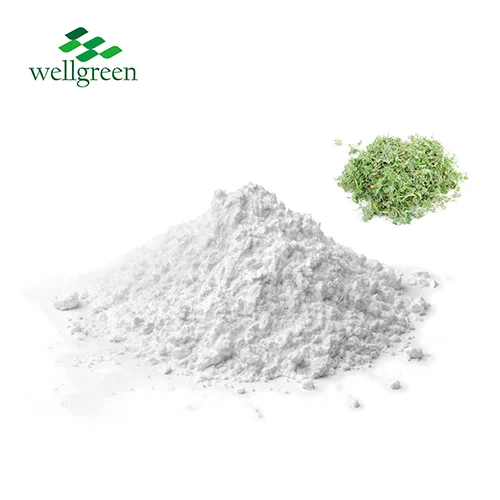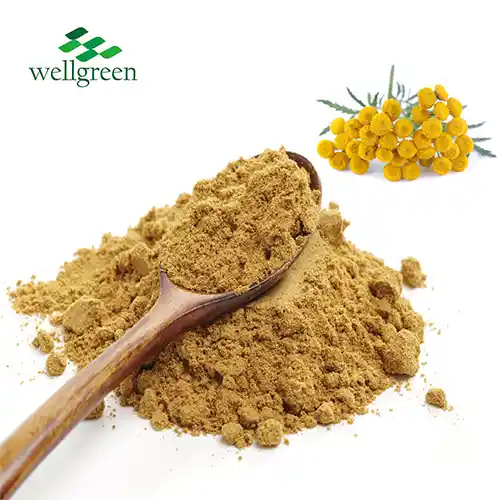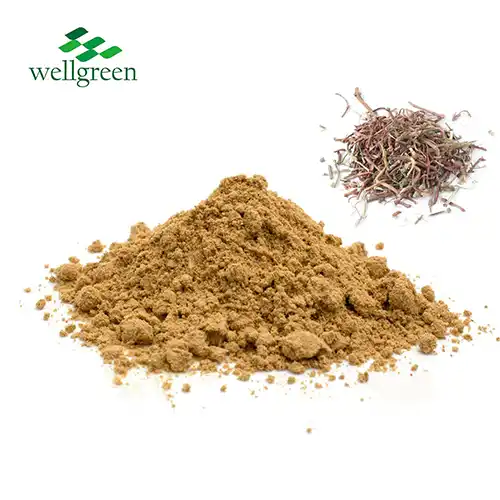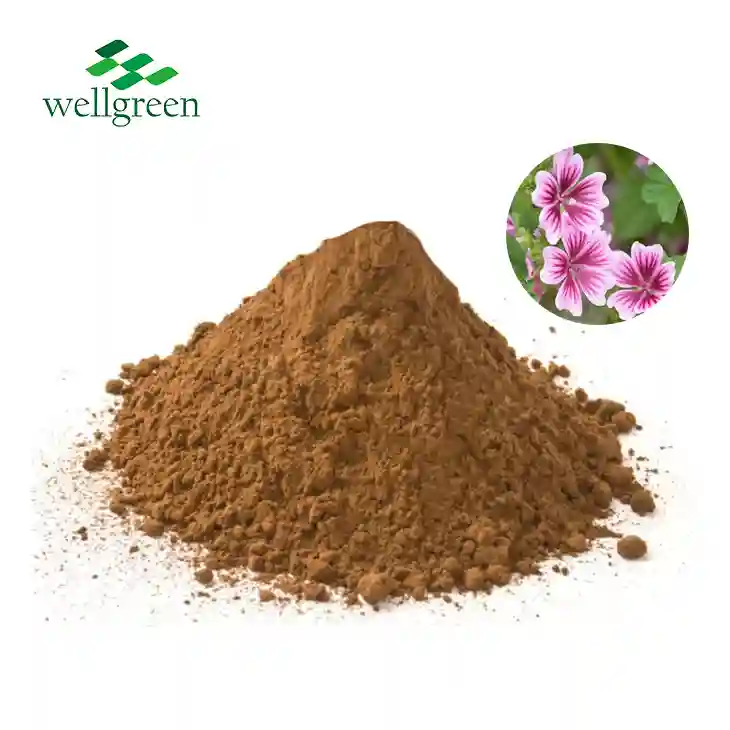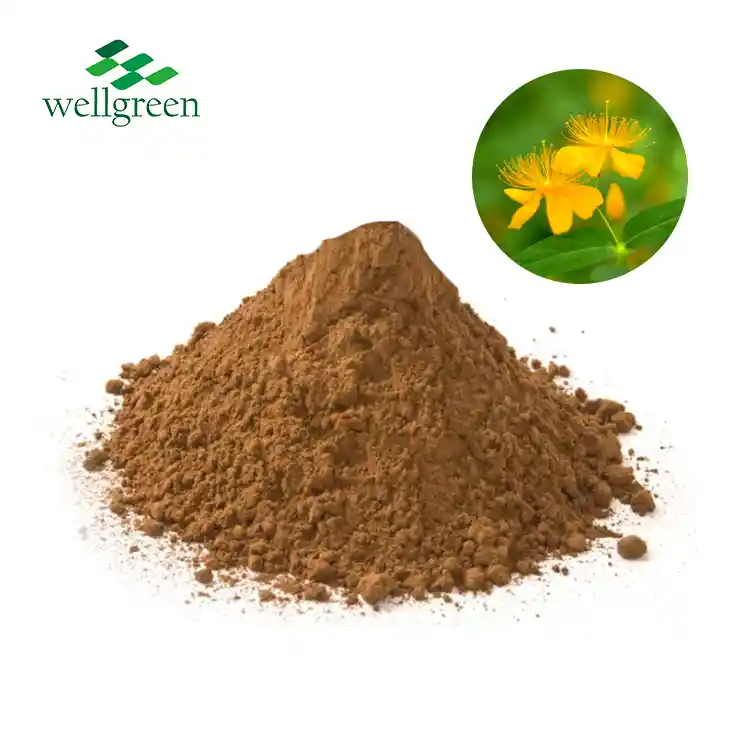Is it Safe to Eat Pomegranate Seeds?
2024-01-29 17:25:10
Pomegranate seeds, with their vibrant tinge and burst of flavor, aren't only a pleasurable addition to culinary creations but also a source of multitudinous health benefits. This companion navigates through the safety aspects of consuming pomegranate seed extract powder, addressing common concerns and furnishing perceptivity into their nutritive value.
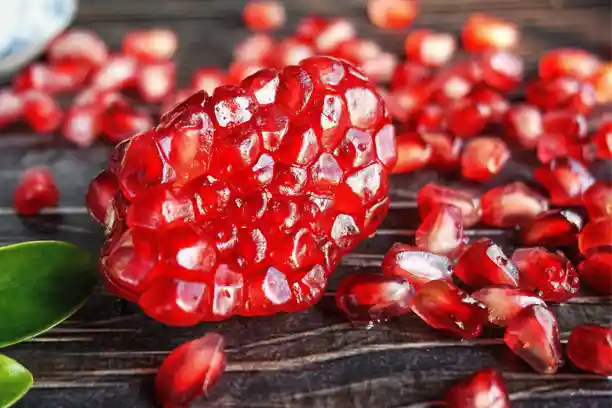 Pomegranate seeds are a nutritive hustler, packed with vitamins, minerals, and antioxidants. They're rich in vitamin C, potassium, fiber, and polyphenols, contributing to overall health and well- being. The antioxidants present in pomegranate seeds, particularly punicalagins and anthocyanins, offer protection against oxidative stress. This may have positive counteraccusations for heart health, inflammation reduction, and overall cellular well- being. Pomegranate seeds have a hard external layer, and caution is advised, especially for youthful children. While they're generally safe for grown-ups, care should be taken to bite them completely to avoid the threat of choking. Antipathetic responses to pomegranate seeds are rare but possible. individualities with known disinclinations to fruits or berries should exercise caution and examiner for any adverse responses after consumption. While pomegranate seeds offer health benefits, temperance is crucial. inordinate consumption may lead to an input of too numerous calories or sugars. Including them as part of a balanced diet ensures optimal benefits without intemperance.
Pomegranate seeds are a nutritive hustler, packed with vitamins, minerals, and antioxidants. They're rich in vitamin C, potassium, fiber, and polyphenols, contributing to overall health and well- being. The antioxidants present in pomegranate seeds, particularly punicalagins and anthocyanins, offer protection against oxidative stress. This may have positive counteraccusations for heart health, inflammation reduction, and overall cellular well- being. Pomegranate seeds have a hard external layer, and caution is advised, especially for youthful children. While they're generally safe for grown-ups, care should be taken to bite them completely to avoid the threat of choking. Antipathetic responses to pomegranate seeds are rare but possible. individualities with known disinclinations to fruits or berries should exercise caution and examiner for any adverse responses after consumption. While pomegranate seeds offer health benefits, temperance is crucial. inordinate consumption may lead to an input of too numerous calories or sugars. Including them as part of a balanced diet ensures optimal benefits without intemperance.
Pomegranate seeds stand as a pleasurable and nutritional addition to a well- rounded diet. Their safety is generally established for the maturity of the population, with considerations for choking hazards in youthful children and implicit relations with certain specifics. Embracing pomegranate seed extract powder as part of a different and balanced diet allows individualities to savor not only their taste but also the nutritive uproariousness they bring.
What are the Benefits of Eating Pomegranate Seeds?
Pomegranate seeds, often referred to as arils, are not just delightful bursts of flavor but also nutrition-packed jewels offering an array of health benefits.
Pomegranate extract powder are abundant in polyphenols, including flavonoids and tannins, which serve as potent antioxidants. These composites combat oxidative stress by negativing free radicals, thereby reducing the threat of habitual conditions and supporting overall cellular health. Pomegranate seeds have demonstrated cardioprotective goods, attributed to their capability to lower blood pressure, reduce cholesterol situations, and enhance overall cardiovascular function. The presence of bioactive composites like punicalagins and anthocyanins contributes to these heart-healthy benefits. Pomegranate seeds paradeanti-inflammatory parcels, aiding in the reduction of inflammation within the body. Thisanti-inflammatory effect is linked to the presence of composites similar as ellagic acid, which may palliate symptoms associated with inflammatory conditions. Certain composites set up in pomegranate seeds, including ellagitannins and anthocyanins, have been studied for their implicitanti-cancer parcels. These substances may intrude with cancer cell growth and inhibit the spread of excrescences, showcasing promising avenues for cancer forestallment.
Pomegranate seeds stand as a testament to nature's capability to offer both tasteful flavors and health- promoting benefits. Whether enjoyed on their own, sprinkled over salads, or blended into smoothies, incorporating these nutrient- thick seeds into your diet can be a pleasurable and healthy choice.
Can Pomegranate Seeds Cause Kidney Stones?
Pomegranate, celebrated for its vibrant seeds and antioxidant-rich juice, has earned a character as a nutritive hustler. still, concerns have surfaced regarding the implicit link between pomegranate seeds and the conformation of kidney stones.
 Extracting pomegranate seeds are laden with essential nutrients, including fiber, vitamins, and antioxidants. While these contribute to the fruit's health benefits, questions arise about specific composites that might impact kidney stone formation. Oxalates are composites set up in colorful foods, including pomegranates, that have been associated with the conformation of kidney stones. Oxalates can bind with calcium, forming crystals that may accumulate in the kidneys, potentially leading to stone conformation. Pomegranates do contain oxalates, but the situations are fairly moderate compared to certain high- oxalate foods. Assessing the oxalate content of pomegranate seeds is pivotal for understanding their impact on kidney health. The propensity to form kidney stones varies among individualities. Factors similar as hydration, salutary habits, and overall health play vital places. Some individualities may be more susceptible to stone conformation based on their unique metabolic processes. While concerns about oxalates live, it's essential to consider the overall nutritive benefits of pomegranate seeds. The fruit's antioxidant parcels,anti-inflammatory goods, and implicit cardiovascular benefits contribute appreciatively to health.
Extracting pomegranate seeds are laden with essential nutrients, including fiber, vitamins, and antioxidants. While these contribute to the fruit's health benefits, questions arise about specific composites that might impact kidney stone formation. Oxalates are composites set up in colorful foods, including pomegranates, that have been associated with the conformation of kidney stones. Oxalates can bind with calcium, forming crystals that may accumulate in the kidneys, potentially leading to stone conformation. Pomegranates do contain oxalates, but the situations are fairly moderate compared to certain high- oxalate foods. Assessing the oxalate content of pomegranate seeds is pivotal for understanding their impact on kidney health. The propensity to form kidney stones varies among individualities. Factors similar as hydration, salutary habits, and overall health play vital places. Some individualities may be more susceptible to stone conformation based on their unique metabolic processes. While concerns about oxalates live, it's essential to consider the overall nutritive benefits of pomegranate seeds. The fruit's antioxidant parcels,anti-inflammatory goods, and implicit cardiovascular benefits contribute appreciatively to health.
The relationship between pomegranate seeds and kidney stones is nuanced. While pomegranates contain oxalates, the overall risk of stone formation appears to be influenced by various factors. Emphasizing moderation, staying hydrated, and considering individual health conditions are crucial aspects of maintaining a balanced and healthful diet that includes the nutritional benefits of pomegranate seeds.
How to Safely Enjoy Pomegranate Seeds?
Pomegranate seeds, with their vibrant tinge and burst of sweet- tart flavor, aren't only a culinary delight but also pack a nutritive punch. Still, enjoying these ruby-red gems requires a bit of know- style to navigate the seeds and prize their full benefits while avoiding implicit risks.
Conclude for pomegranates that are heavy for their size, indicating pulpiness. A rotund, round appearance frequently signifies ripe and scrumptious seeds. Cut off the crown, score the skin, and gently open the pomegranate to expose the seeds. Submerge the fruit in a coliseum of water, allowing the seeds to sink while pith floats. This method minimizes mess and facilitates seed separation. Store extracted seeds in an watertight vessel in the refrigerator. Proper storehouse maintains newness and enhances the seeds' crisp texture. Pomegranate seeds add a burst of flavor and a pop of color to salads. Their sweet- tart profile complements colorful flora, crapola , and vinaigrettes. Pomegranate seeds are loaded with antioxidants, particularly punicalagins and anthocyanins, which contribute to their vibrant color. These composites offer implicit health benefits, includinganti-inflammatory and heart-defensive effects.
Pomegranate seeds, with their delightful taste and nutritional benefits, can be a delightful addition to your diet when enjoyed mindfully. From selecting the perfect fruit to incorporating seeds into various dishes, savoring pomegranate seeds is a journey worth taking for both culinary pleasure and potential health perks.
 WELLGREEN is an innovation-driven manufacturer of herbal extracts since 2011 certified by ISO9001:2015, ISO22000, HALAL, KOSHER, HACCP, and Organic Certificate. If you need pomegranate seed extract powder, please contact us immediately, E-mail:wgt@allwellcn.com We can supply customized service as per your request.
WELLGREEN is an innovation-driven manufacturer of herbal extracts since 2011 certified by ISO9001:2015, ISO22000, HALAL, KOSHER, HACCP, and Organic Certificate. If you need pomegranate seed extract powder, please contact us immediately, E-mail:wgt@allwellcn.com We can supply customized service as per your request.
References:
1. Seeram, N. P., Aviram, M., Zhang, Y., Henning, S. M., Feng, L., Dreher, M., & Heber, D. (2008). Comparison of antioxidant potency of commonly consumed polyphenol-rich beverages in the United States. Journal of Agricultural and Food Chemistry, 56(4), 1415–1422. doi:10.1021/jf073035s.
2. Gil, M. I., Tomás-Barberán, F. A., Hess-Pierce, B., Holcroft, D. M., & Kader, A. A. (2000). Antioxidant activity of pomegranate juice and its relationship with phenolic composition and processing. Journal of Agricultural and Food Chemistry, 48(10), 4581–4589. doi:10.1021/jf000404a.


